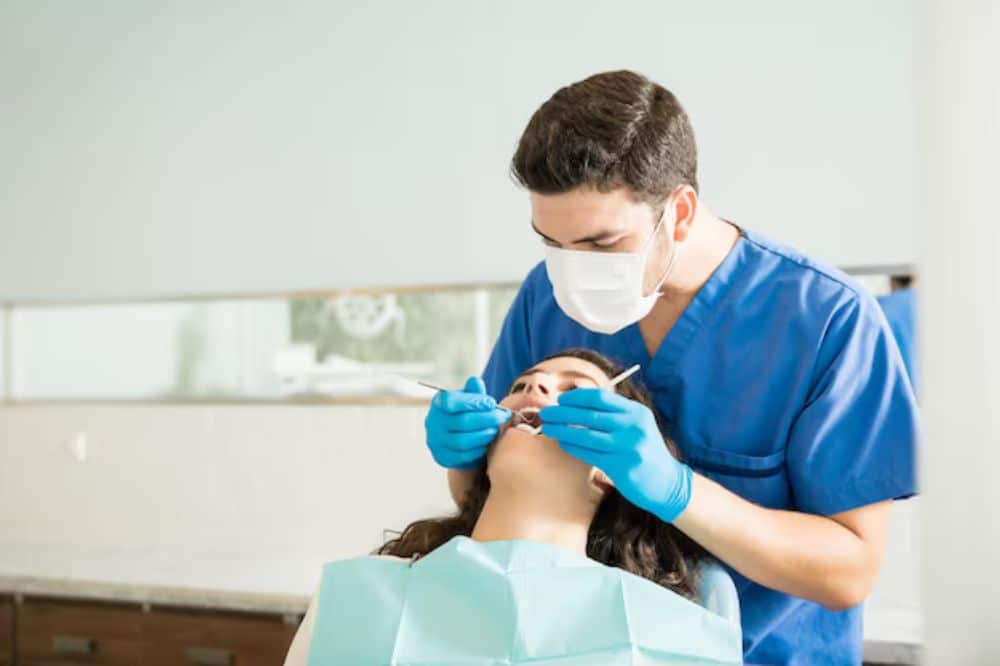Understanding the Link Between Jaw Function and Headaches
If you suffer from chronic headaches, you may have already explored several possible causes—stress, dehydration, poor posture, or even eye strain. However, one often overlooked factor is jaw function. Issues with the jaw, particularly with the temporomandibular joint (TMJ), can lead to persistent headaches and discomfort.
What Is TMJ and How Does It Affect Headaches?
The temporomandibular joint (TMJ) connects your jaw to your skull and is responsible for movements like chewing, talking, and yawning. When this joint isn’t functioning properly, it can lead to a condition known as temporomandibular joint disorder (TMD).
TMD can cause:
- Jaw pain and stiffness
- Clicking or popping sounds when opening the mouth
- Difficulty chewing
- Ear pain or ringing in the ears
- Chronic headaches and facial pain
Because the TMJ is closely connected to the muscles and nerves in your face and head, dysfunction in this area can trigger tension headaches or even migraines.
How Jaw Misalignment Contributes to Headaches
Muscle Strain and Tension
When your jaw is misaligned, it puts excessive stress on the surrounding muscles. This strain extends to the head, neck, and shoulders, causing tightness that can lead to tension headaches. Many patients experience this discomfort without realizing that their jaw function is to blame.
Teeth Grinding (Bruxism) and Headaches
Bruxism, or teeth grinding, is another major contributor to jaw-related headaches. Grinding your teeth—especially at night—puts pressure on the TMJ and surrounding muscles, often resulting in morning headaches. Chronic grinding can also lead to worn-down teeth and increased jaw pain.
Poor Bite Alignment
A misaligned bite (malocclusion) forces the jaw muscles to work harder to maintain balance. This overuse can lead to muscle fatigue and headaches. Dental treatments aimed at correcting bite issues can help alleviate these symptoms.
Signs That Your Headaches Might Be Jaw-Related
If you’re unsure whether your headaches stem from jaw function issues, consider the following signs:
- Frequent headaches, particularly around the temples or behind the eyes
- Jaw pain or stiffness upon waking up
- Clicking or popping noises when opening or closing your mouth
- Difficulty chewing or speaking comfortably
- Pain that radiates from the jaw to the head, neck, or shoulders
If you experience these symptoms, a dental evaluation can help determine if TMJ dysfunction is contributing to your headaches.
Treatment Options for Jaw-Related Headaches
Jaw Function Restoration and TMJ Therapy
A comprehensive approach to jaw function restoration can provide relief from headaches and other symptoms. Some common treatment options include:
- Customized Nightguards: These oral appliances prevent teeth grinding and reduce pressure on the jaw, helping to minimize morning headaches.
- Bite Adjustment: Dental treatments such as reshaping teeth, orthodontics, or restorations can improve bite alignment and relieve muscle strain.
- Physical Therapy and Jaw Exercises: Strengthening and relaxing the jaw muscles can improve function and alleviate tension.
- Lifestyle Adjustments: Reducing stress, improving posture, and avoiding hard foods can help manage TMJ-related symptoms.
- Botox for TMJ Pain: Some patients find relief from chronic jaw tension and headaches through Botox injections, which relax overactive muscles.
When to See a Dentist for Chronic Headaches
If traditional headache treatments haven’t worked, and you suspect your jaw might be involved, it’s time to seek professional help. A dentist trained in TMJ therapy can evaluate your jaw function and recommend appropriate treatment options to relieve your headaches.
Additional Home Remedies to Manage Jaw-Related Headaches
Hot and Cold Therapy
Applying a warm compress to the jaw area can help relax tight muscles and improve circulation. Cold therapy, on the other hand, can reduce inflammation and numb pain. Alternating between heat and cold can provide significant relief.
Gentle Jaw Exercises
Performing gentle stretching and strengthening exercises can help improve jaw mobility and reduce tension. Try slowly opening and closing your mouth while maintaining a relaxed posture.
Avoiding Caffeine and Alcohol
Caffeine and alcohol can contribute to dehydration, which may worsen headaches. Reducing the intake of these substances can help prevent headache flare-ups.
Practicing Mindful Chewing
Chewing food evenly on both sides of your mouth can help maintain balanced jaw function and prevent excessive strain on one side.
Managing Stress Levels
Stress management techniques like deep breathing, meditation, and gentle yoga can help reduce jaw clenching and overall muscle tension.
Get Expert Care at Aria Dental Studio
At Aria Dental Studio, our experienced Vancouver dentist specializes in jaw function restoration to help patients find relief from chronic headaches. Conveniently located as your trusted downtown dentist, we provide comprehensive TMJ assessments and personalized treatment plans. If you’re struggling with persistent headaches, book a consultation today and take the first step toward lasting relief.
For those concerned about gum health, explore our periodontal services. At Aria Dental, we provide a range of dental services from general dentistry to cosmetic service options.
Contact us now to schedule your appointment!



